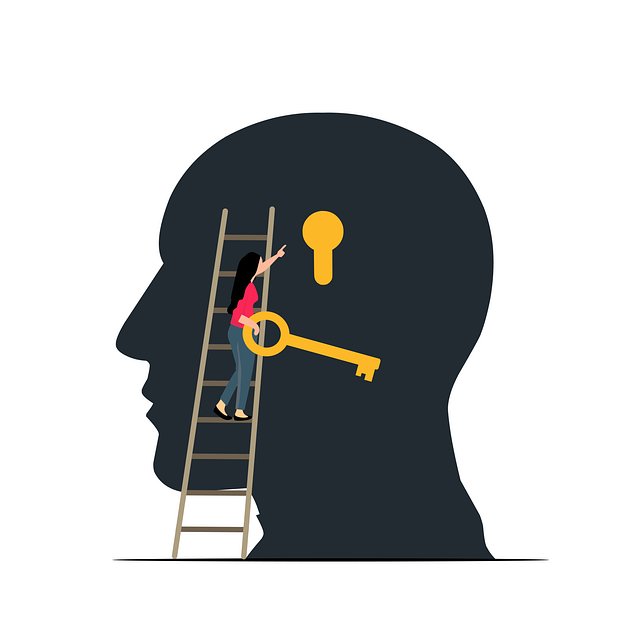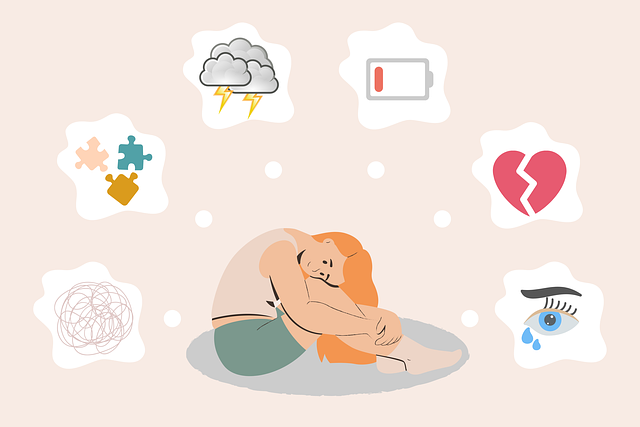Aurora CBT (Cognitive Behavioral Therapy) is an effective group mental health support system, utilizing skilled facilitators to encourage active participation through dialogue, mindfulness, and self-awareness. This approach structures engaging activities like role-playing and goal-setting workshops, enhancing community support for successful Community Outreach Programs. The method combines techniques to create a safe, supportive space, challenging negative thought patterns, promoting healthier coping mechanisms, and validating diverse needs and backgrounds. Group leaders play a central role in shaping dynamics, fostering trust, and ensuring every member feels heard and validated, vital for successful CBT-based initiatives.
In today’s fast-paced world, mental wellness group facilitation plays a pivotal role in supporting individuals navigating various challenges. This article explores powerful techniques rooted in Aurora Cognitive Behavioral Therapy (CBT), offering a robust foundation for group leaders aiming to create impactful sessions. From understanding CBT principles to fostering supportive environments, we delve into strategies that enhance engagement and promote healing. Discover key tactics to effectively facilitate groups, empowering participants to embrace mental wellness through connection and shared experiences.
- Understanding Aurora Cognitive Behavioral Therapy (CBT): A Foundation for Group Facilitation
- Key Techniques for Effective Mental Wellness Group Facilitation
- Fostering a Supportive Environment: Tips and Strategies for Group Leaders
Understanding Aurora Cognitive Behavioral Therapy (CBT): A Foundation for Group Facilitation

Aurora Cognitive Behavioral Therapy (CBT) serves as a robust foundation for group facilitation techniques in mental health support. CBT focuses on identifying and changing negative thought patterns, behaviors, and feelings, empowering individuals to take control of their mental wellness. This therapeutic approach is highly effective in group settings, fostering an environment where members can learn from one another’s experiences and share coping strategies. By facilitating discussions centered around cognitive restructuring and behavioral activation, facilitators skilled in CBT help group participants challenge unhelpful thoughts, develop healthier perspectives, and engage in activities that promote positive changes.
Understanding the principles of Aurora CBT enables facilitators to incorporate evidence-based practices into their group sessions. This involves encouraging active participation through open dialogue, teaching mindfulness techniques, and promoting self-awareness. Additionally, it emphasizes the importance of building empathy among group members, a key component often highlighted in Mental Health Policy Analysis and Advocacy. Empathy-building strategies facilitate deeper connections and create a safe space for sharing personal struggles, fostering a supportive community. Moreover, facilitators can leverage CBT principles to structure activities that enhance engagement, such as role-playing exercises, goal-setting workshops, and peer support networks, ultimately contributing to the successful implementation of Community Outreach Program Initiatives.
Key Techniques for Effective Mental Wellness Group Facilitation

Effective mental wellness group facilitation involves a blend of techniques designed to create a safe and supportive environment where participants can openly discuss their experiences and learn from one another. One powerful approach is incorporating elements of Aurora Cognitive Behavioral Therapy (CBT), which focuses on challenging negative thought patterns and promoting healthier coping mechanisms. Facilitators can guide discussions on identifying triggers, reframing perspectives, and practicing mindfulness techniques to manage stress.
Additionally, integrating Stress Management strategies into group sessions enhances participants’ ability to cope with daily challenges. Encouraging Mental Wellness Journaling Exercises allows individuals to reflect on their emotions, track progress, and share insights anonymously. This, coupled with Healthcare Provider Cultural Competency Training, ensures that facilitators can address diverse needs and backgrounds, fostering an inclusive atmosphere where everyone feels validated and understood.
Fostering a Supportive Environment: Tips and Strategies for Group Leaders

Creating a safe and supportive environment is essential for effective group facilitation, especially when employing Aurora Cognitive Behavioral Therapy (CBT) techniques. Group leaders play a pivotal role in shaping the dynamics and ensuring members feel comfortable sharing their experiences and insights. One key strategy is to establish clear ground rules from the outset, fostering an atmosphere of respect, confidentiality, and active listening. This paves the way for members to build trust and encourage one another openly.
Additionally, incorporating interactive activities that promote emotional regulation and mood management can strengthen the therapeutic impact. Group leaders can guide exercises that help individuals identify and express their emotions healthily, ultimately fostering a sense of community within the group. Regular feedback sessions and open dialogue allow members to provide input on the group’s progress, ensuring everyone feels heard and validated, which is vital for successful implementation of any Community Outreach Program.
Aurora Cognitive Behavioral Therapy (CBT) provides a powerful framework for group facilitators aiming to improve mental wellness. By employing key techniques such as active listening, structured discussions, and cognitive reframing, leaders can create a supportive environment that empowers individuals to navigate their thoughts and emotions effectively. Integrating these practices, as outlined in this article, enables facilitators to facilitate meaningful connections, foster growth, and enhance overall mental well-being within group settings.














